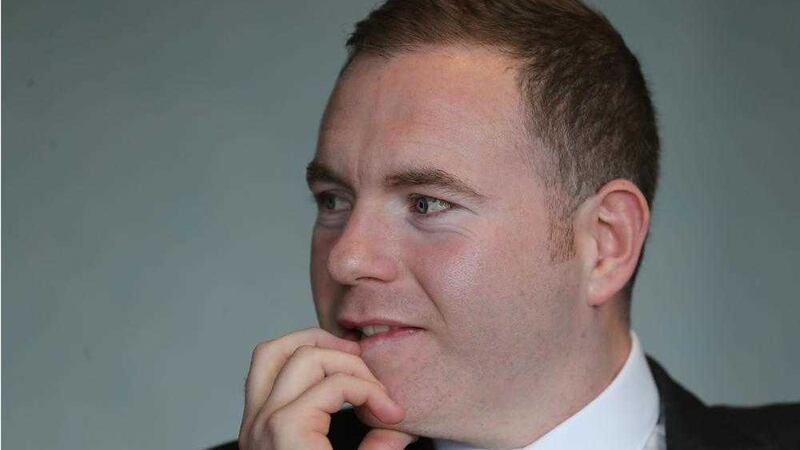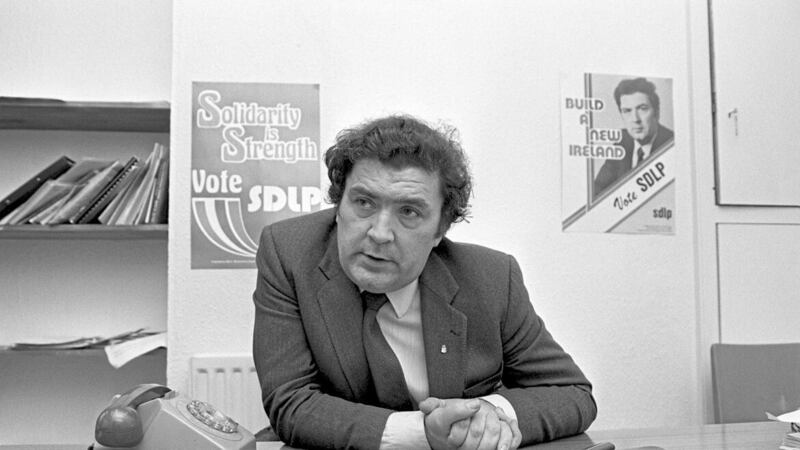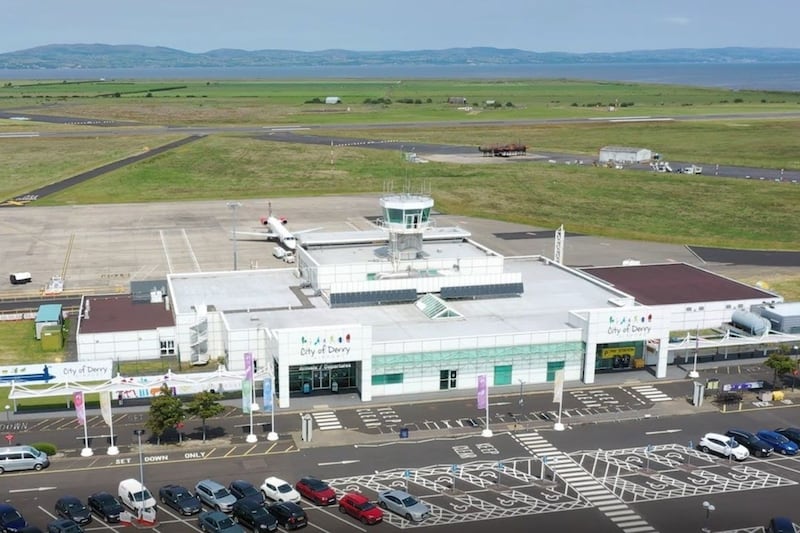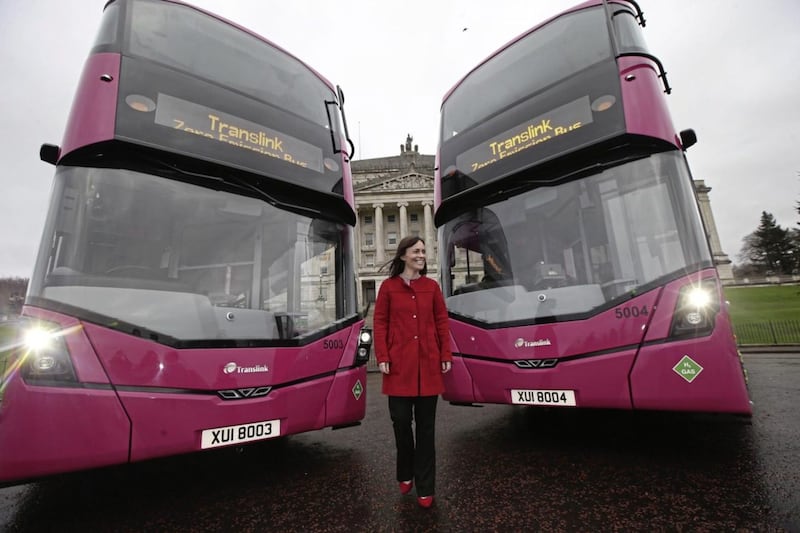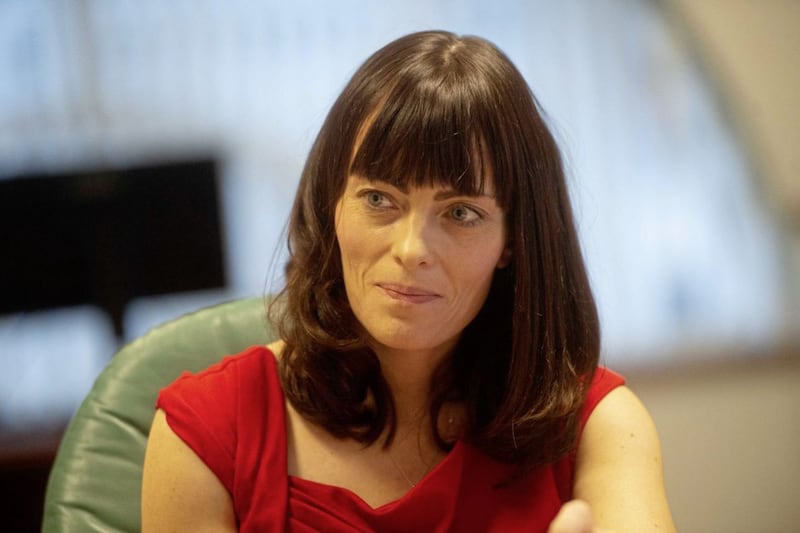CHRIS Hazzard admits that his appointment as Stormont's first minister for infrastructure came as something of surprise. At 31, he is two years older than Justice Minister Claire Sugden and therefore the second youngest minister at the Executive table.
He appears undaunted by the post's responsibilities and regards it as an "exciting" prospect.
The minister says one of his key priorities over the next five years is redressing the north's infrastructure deficit, particularly west of the Bann, where he identifies "real need".
"Some people see it as addressing 50 years of neglect and underspend in the next five years, which is very challenging, but we’re going to make a start on it," Mr Hazzard says.
"We want to grow economy in a regionally balanced way so it's important infrastructure projects west of the Bann are prioritised."
The long-awaited upgrades of the A5 Dublin-Derry road and the A6 Belfast-Derry road are both long overdue and have stalled for a variety of reasons. The minister is confident work on both projects will be well advanced by the time his tenure ends.
Work on the Randalstown-Castledawson stretch of the A6 will commence next month, the minister says, and he is optimistic that other elements of the upgrade can progress over the next five years. However, the timeline for the already protracted A5 dualling is less clear, with both a planning inquiry and funding potentially hindering headway.
Mr Hazzard says it will be at least this time next year before work begins on the north-west route and that the Republic's government will need to commit significantly more than the £75m currently available if the project is to meet its original specification.
The Dublin government's input into the A5 was reaffirmed in last year's Fresh Start agreement, alongside commitments to assist with the development of the Ulster Canal and Narrow Water bridge, the latter of which would provide a gateway from the Republic into Mr Hazzard's own constituency of South Down.
He believes the bridge will act as a catalyst for tourism and is hopeful that funding for the project will be firmed-up following the autumn meeting of the North-South Ministerial Council.
However, money for other key infrastructure projects is less certain, the minister says, due to June's Brexit vote.
Belfast's York Street interchange and the city's transport hub are two schemes that rely on substantial EU funding, which the minister says is now in jeopardy.
"There is no doubt that some of the projects that this department and myself would have been looking at would involve additional funds from Europe," he says.
"These are the challenges we face over the months and years ahead if we want to move on and develop our infrastructure – how are we going to make up the (funding) gap?"
While he remains a strong advocate of engagement with Europe, the minister believes the British government needs to fulfil pre-referendum commitments from Brexiteers over meeting any financial shortfalls resulting from the UK's withdrawal from the EU.
One method of bridging the funding gap that the minister dismisses is privatisation, which he believes has no merit. Having recently halted the roll-out of the water meters in newly-connected domestic properties that many saw as a precursor to charges, he also rules out privatisation of the north's ports and the introduction of toll roads.
Mr Hazzard will next year oversee the much-anticipated launch of Belfast Rapid Transit (BRT) scheme, which runs from west Belfast to Stormont in the east of the city and provides a connection to Titanic Quarter. He dismisses as "flippant" the suggestion that BRT is a 'glorified bus', saying it suits the "design and dynamic" of the city.
"Belfast can be quite a divided city at times but we now have a transport system that links east and west and everything that brings with it," he says.
The minister is keen to invest in public transport and develop a 'greenway' network, utilising miles of disused railway lines.
The South Down MLA is confident his DUP executive colleagues will give his plans a sympathetic hearing and characterises the atmosphere at the ministers' weekly meetings as "nice".
"I think it’s benefited from the fact that some of the dysfunctional elements have now been removed from the executive," he says.
"If you look at the SDLP and UUP over the last number of years they’ve had one foot in and one foot out of the executive. I think that’s been a destructive force that has now been removed."
